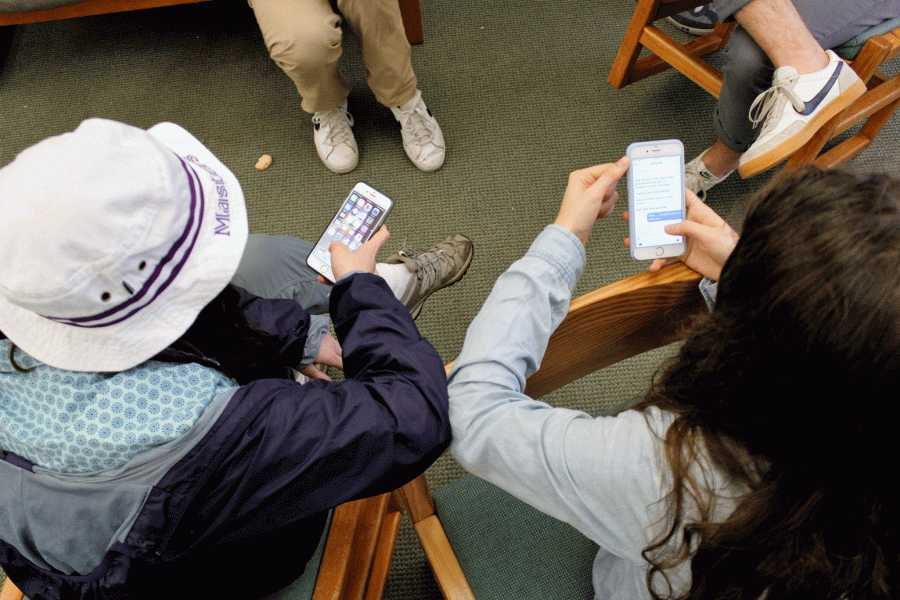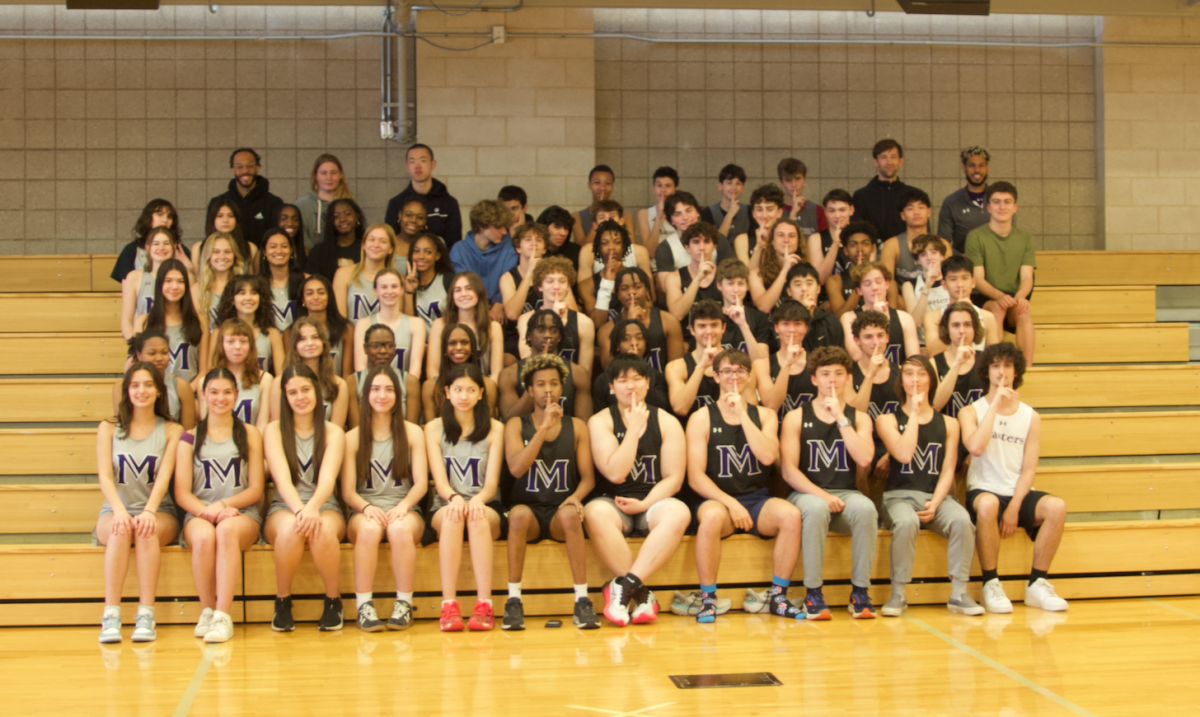Cellphones are the new security blanket
Seniors Isabelle Davis and Sophia Gutfreund play on their phones in the McKnight Room. Students at Masters can often be seen attached to their phones in the dining hall, walking from class to class, and in the library.
April 25, 2017
The cast of the Peanuts have been some of the most recognizable cartoons characters for over fifty years: Charlie Brown, the eccentric and multifaceted Snoopy, the dynamic Lucy, and, of course, Linus, Charlie’s steadfast friend, dragging his blue security blanket along behind him wherever he goes.
While Linus had his blanket, today’s young adults seem to have found their own version of security in their cell phones, and can surely never be found without them: walking through the grocery store, taking selfies in the mall, even when switching classrooms throughout the day, one is sure to find a smartphone glued to the palm of a teenager’s hand.
In a study conducted by Russell Clayton of Florida State University, Clayton tested a way to prove the “security blanket theory”. The test was simple: he was to have a group of 18-24 year olds complete word search puzzles, and whoever found the most would win a gift card. After the first puzzle, the group had to remove their phones and put them in a corner of the room. On average, the members found nine words with their phone nearby, but only six when it was not with them.
So why did a simple communication device replace the blanket? While having a brick of glass and metal by our sides seems unnecessary, it serves as a link to the world beyond our view. Cell phones have turned into more than just simply a device; they have become our method of communication, and our connection to the outside world. Through the internet and social media, people have the ability to interact constantly, and why wouldn’t they want to? It is easy to get sucked into this digital world, but living your life through the lens of a camera distracts from the moment that’s unfolding right in front of you. Concerts and festivals have turned into less about the music, and more about “How many likes would I get?” A simple trip to the mall turns into mirror selfies for Instagram, and a fun class project turns into a 100 second Snapchat story.
Masters has even noticed the ongoing trend of grasping our “blankets”, and while administration has tried to make strides against students clutching their phones throughout the day, they only seem to have failed. The white, plastic phone bins now sit in corners of each classroom: used only to house a stray pencil or two, or just completely neglected. No matter what disciplinary actions threatened against the students, Masters can’t seem to shake the blankets either.
While it’s nice to have a sidekick by your side with seemingly unlimited knowledge, it might be time to let go. It’s important to remember that the world will continue even if you aren’t able to answer your phone; generations of teenagers before have managed to stay in touch and live out a full youth experience without a cell phone. Although having an instant friend in your pocket is comforting or entertaining, sometimes it’s time to leave the blanket at home.
**To read more about Russell Clayton’s experiment, and a transcript of an interview with Clayton, click on the link below.**
https://www.wsj.com/articles/cellphone-as-security-blanket-1444788412


























